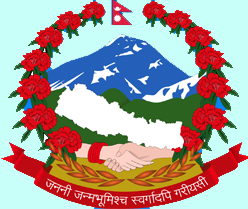The Department is a regulatory agency of Government of Nepal. Regulation of co-operatives is an administrative process – but it is also an educational process. Not infrequently, regulation involves promotional services as well. Thus the functions of the Department may be put under three headings: (a) Regulation, (b) Promotion and (c) Training.
A. Regulation
The departmental regulatory services are intended to ensure that co-operatives operate in line with the principles of Co-operation, that they fully comply with the prevailing legislation; and that they are governed well as well as being protected from malfeasance. Here are some of the regulatory activities of the Department:
- Registration of co-operatives
- Inspection of co-operatives
- Approval of amendments to the Bye-laws of co-operatives
- Systemetic, off-site and on-site monitoring
- Handling of grievances
- Follow-up of auditing and appointment of the auditor in cases where co-operatives fail to do so as prescribed in the law
- Reorganization of co-operatives, including amalgamation, division and localization
- Financial analysis of co-operatives
- Determination of reference interest rates and service or renewal charges on loans
- Issue of directives concerning adherence to the principles, values and norms of co-operation as well as legal provisions
- Punitive measures
- Co-operation with provincial and local governments in achieving regulatory purposes
- Dissolution of co-operatives and appointment of the liquidator
- Enforcement of provisions of other applicable laws, such as those of the Money Laundering Prevention Act 2008.
B. Promotion
When the Department undertakes a promotional intervention, it does so with a view to:
- having a feel for the problem;
- effecting common ownership;
- facilitating operational networking;
- ensuring complementary of efforts;
- exploring opportunities for reconstruction;
- executing promising business ideas; and
- instituting self-regulating mechanisms.
The usual promotional activities of the Department include the following:
- public awareness campaigns;
- organisation of specific groups, e.g. unemployed workers or landless farmers, into co-operatives;
- creation of an integrated database and projection of achievements
- seed-money, fixed capital and programme grants for co-operative business projects or reform initiatives; and
- recommendation for specific fiscal incentives, such as exemption of custom duties or registration fees.
C. Training
The training activities of the Department are for the most part carried out in support of the initiatives taken on the part of the provincial and local authorities. Specialized regulation, management and leadership courses are offered by the Co-operative Training and Research Centre in Kathmandu. It is also a resource centre and is extensively involved in research, material development and train-the-trainer activities.


 Nepali
Nepali English
English